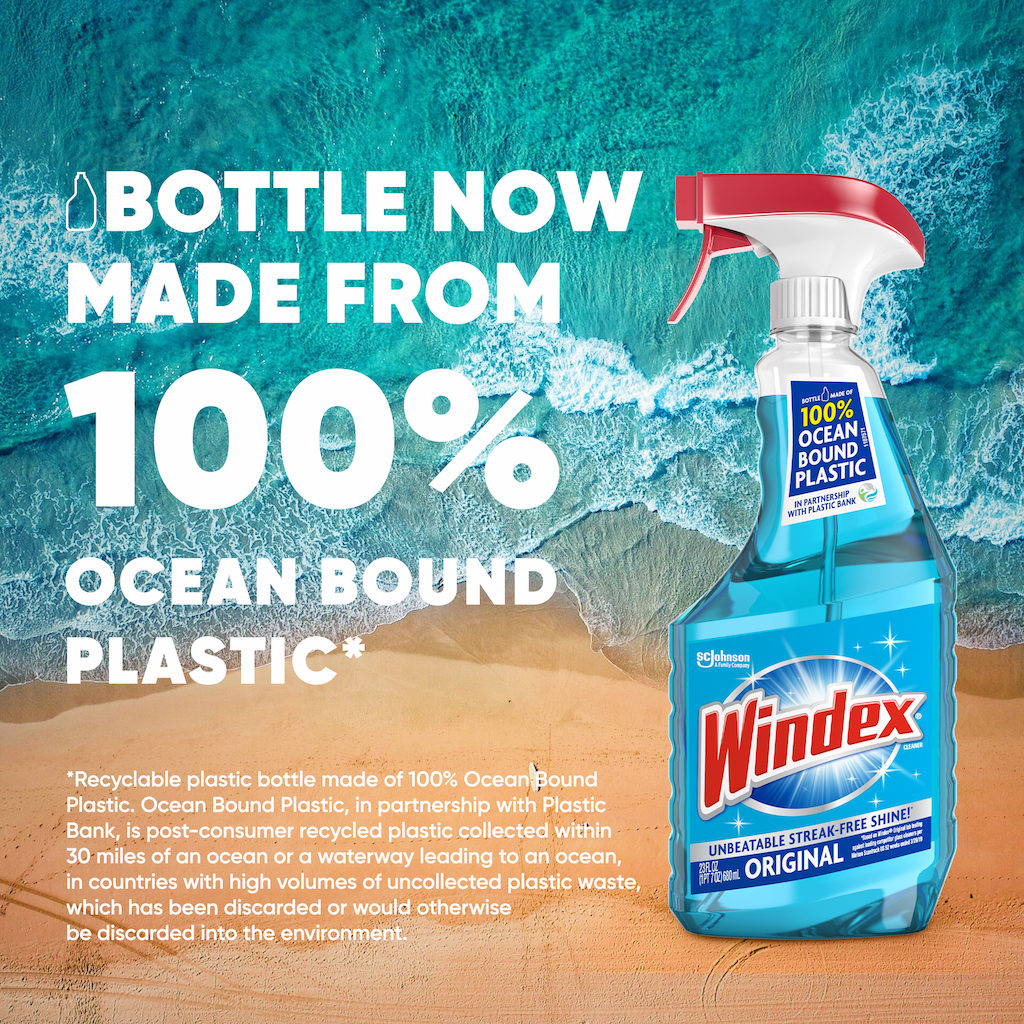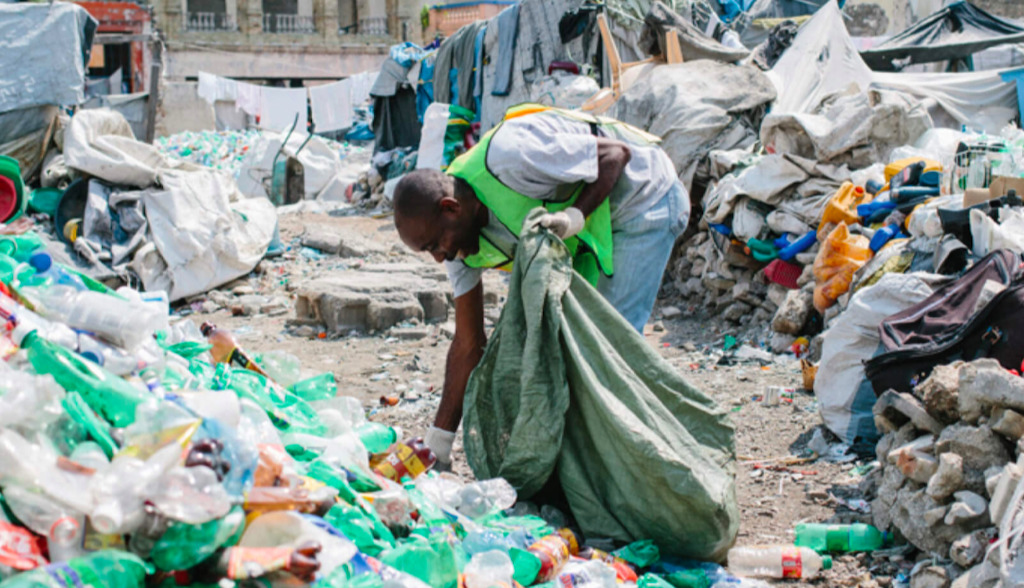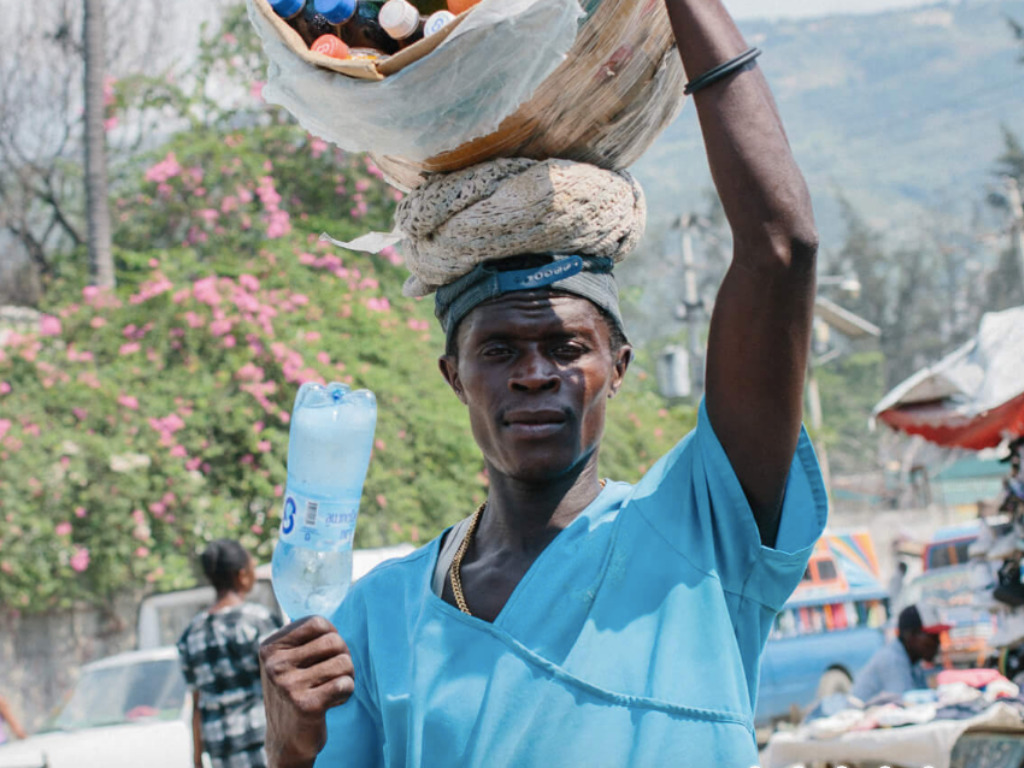This Plastic ‘Bank’ Has Kept More Than 2 Billion Plastic Bottles Out of Oceans
3 Mins Read
A milestone number of plastic bottles have been kept out of oceans, according to the social enterprise Plastic Bank. It says it’s kept the equivalent of two billion plastic bottles from entering the world’s oceans since launching in 2013.
Plastic Bank works around the world to keep plastic out of oceans while building ethical recycling ecosystems for coastal communities. It reprocesses the plastic for reintroduction into the global supply chain, incentivising collectors. The platform uses blockchain technology to allow for transparency, traceability, and scalability. And it says it hit the benchmark with help from one of its landmark partners.
A longstanding partnership with the household goods brand SC Johnson accounts for half of the averted bottles, Plastic Bank says. SC Johnson brands include Mrs. Meyers, Windex, and Method.
Part of the partnership with SC Johnson included the launch of plastic bottles made entirely from recycled ocean-bound plastic, including bottles for Windex in the U.S., and Mr. Muscle in the U.K. and Ireland.
2 billion plastic bottles
“Plastic pollution and its impact on our oceans is one of the world’s most significant challenges. The collection of 2 billion ocean-bound plastic bottles is a testament to the fact that each of us can be a hero in reducing plastic waste while improving the lives of people who collect it,” David Katz, Founder and CEO of Plastic Bank, said in a statement. “Our Heroes – SC Johnson, the collectors, other partners, branch owners, contributors and employees – are stewarding business, consumption, lives and the planet towards regeneration.”

According to Plastic Bank, two billion bottles equal nearly 90 million pounds of plastic. An estimated 8 million metric tons of plastic enter oceans annually, the effort says.
Hitting the 2 billion with SC Johnson benchmark included the installation of nearly 400 collection centers across Indonesia, Brazil, and the Philippines since 2018.
“Preventing the equivalent of 2 billion plastic bottles from polluting our ocean ecosystems is an incredible feat, and SC Johnson is proud to play a large part in that achievement as we work toward our vision for a waste-free world,” said Fisk Johnson, Chairman and CEO of SC Johnson. “Our partnership with Plastic Bank is one of the many actions we are taking around the world to reduce waste, increase our use of recyclable plastic in our products and support underserved communities.”
Plastic pollution
Plastic Bank says 100 percent of its plastic is recovered within 30 miles of oceans or waterways in countries without formal waste collection infrastructures. The effort with SC Johnson has provided more than 22,000 people around the world with additional income. Plastic Bank says overall it worked with more than 30,000 collectors across 500 collection points worldwide.

The global plastic waste crisis is reaching critical levels. According to the Pew Charitable Trust, the amount of plastic in the world’s oceans is projected to nearly triple by 2040 without urgent, large-scale action. It detailed its findings in a 152-page report published in 2020 entitled “Breaking the Plastic Wave,” and a peer-reviewed study in the journal Science.
Experts have warned that fish could be outnumbered by plastic by midcentury if efforts to reduce plastic use aren’t adopted worldwide. Not only does plastic poison marine life and the food chain, but it makes the ocean floor less capable of capturing carbon, which will speed global warming.
“The scale of this challenge is daunting,” Winnie Lau, senior manager of Pew’s ocean plastics program and lead author on the Science study said last year. “Unless we act, by 2040 the amount of plastic going into the ocean would triple annually, and the amount in the ocean would nearly quadruple. That’s unimaginable and unsustainable.”
Images courtesy of Plastic Bank.




